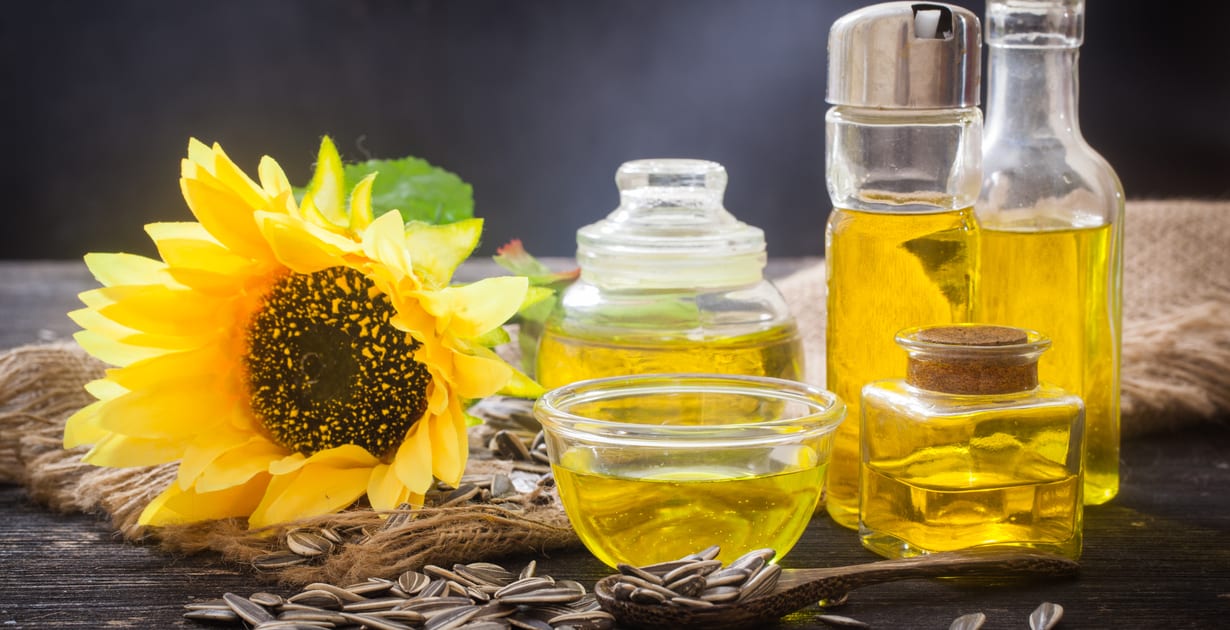Sunflower Oil and cholesterin
Linoleic Acid and cardiovascular disease
Sunflower Oil and Obesity
The Struggle to form oil Healthy
Tips for Healthy Fats
Sunright Sunflower Oil Manufacturers In Chennai’s Sunflower oil is one among the foremost commonly used cooking oils in India. Many physicians and health organizations promote Sunright the Best Sunflower Cooking Oil In Chennai as a healthy fat, claiming it offers many health benefits, including a capability to enhance heart health, reduce inflammation, improve your skin, and even protect against cholesterol.
Unfortunately, the essential carboxylic acid profile of oil and other vegetable oils — like vegetable oil and oil — is more inflammatory than not.
With one set of health experts applauding this oil and another group saying it’s terrible for you — what must you believe?
Read on for a science-based check out this oil to seek out where those health claims come from, and what the long-term adverse effects of sunflower-seed oil consumption really are.
What Is Sunflower Oil?
Sunflower oil is the Healthiest Cooking Oil In Chennai, that comes from sunflower seeds (Helianthus annuus), which are packed with many nutrients, including meaningful amounts of antioxidant, A, folate, and choline.
However, vegetable oil is different. First of all, it’s extracted from a distinct form of seed than the one you’ll find within the snack aisle. Secondly, thanks to the way it’s processed, the oil itself winds up losing a good part of its nutrient content.
There are two kinds of processing:
Cold-pressed to create unrefined vegetable oil — typically used for salad dressings and sauces.
Bleached, de-gummed, or chemically extracted to create refined sunflower-seed oil.
Refined sunflower-seed oil lacks the antioxidant and polyphenols of its unrefined counterpart, but it’s somewhat more stable for high-temperature cooking.
To further stabilize the oil, manufacturers want to hydrogenate it. Hydrogenation turns liquid oil into a solid or semi-solid at room temperature– like margarine, for example.
Although hydrogenated fats aren’t the identical as partially hydrogenated fast (aka, trans fats), there could still be a little amount of trans fats in hydrogenated sunflower-seed oil.
Trans fats are linked to chronic diseases like cancer, diabetes, and cardiomyopathy, and are banned within the U.S. since 2018. the globe Health Organization (WHO) plans on enforcing a worldwide ban by 2023.
Sunflower Oil and LDL cholesterol
There’s research showing vegetable oil consumption ends up in slight reductions in LDL cholesterol (LDL-C) levels.
However, reducing your LDL-C doesn’t lower your risk of cardiovascular disease. LDL-C isn’t an excellent predictor of disorder (CVD) risk within the first place, and nowadays clinicians are looking instead at LDL particle number or LDL-P.
LDL-P measures the amount of lipoproteins within the bloodstream, as critical as the quantity of cholesterol molecules within each lipoprotein (LDL-C).
When there’s a discordance between LDL-C and LDL-P, LDL-P is the better predictor of upset.
Therefore, this oil isn’t really doing much for your cholesterol levels. In fact, it’d be raising your risk of cardiovascular disease.
That’s where linoleic acid comes in.
Linoleic Acid and cardiomyopathy
When it involves carboxylic acid content, sunflower-seed oil is created of the following:
60-65% PUFA (polyunsaturated fatty acids) – Linoleic acids
20-25% MUFA (monounsaturated fat) – Mid-oleic acids
10-15% SFA (saturated fatty acids) – Palmitic acids
Sixty-plus percent could be a lot of linoleic acids. vegetable oil, in fact, has one in all the best linoleic acid contents of vegetable oils.
linoleic acid} is an omega-6 fatty acid that may accelerate the progression of cardiomyopathy.

